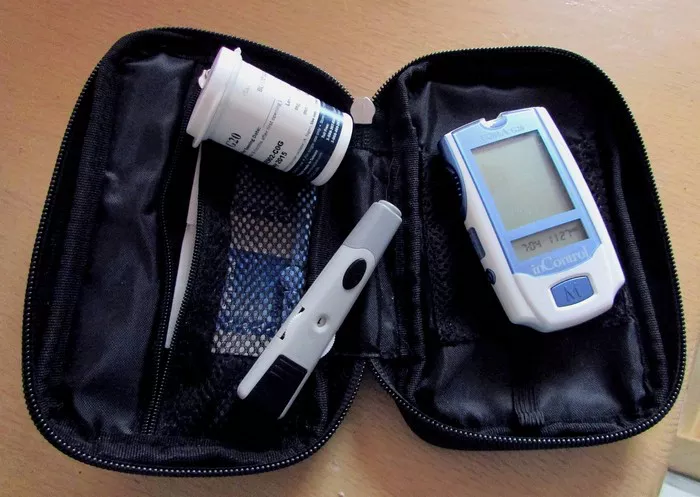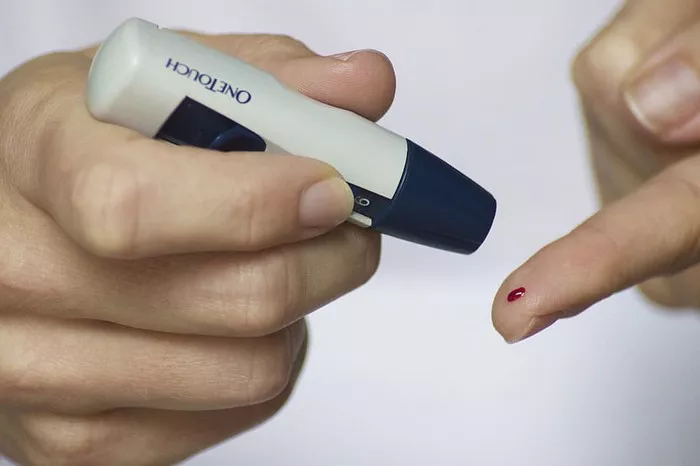Insulin resistance is a condition in which cells in the body become less responsive to the effects of insulin, a hormone produced by the pancreas. Insulin plays a crucial role in regulating blood sugar levels by facilitating the uptake of glucose into cells for energy production. When cells become resistant to insulin, glucose accumulates in the bloodstream, leading to elevated blood sugar levels. Over time, this can increase the risk of developing type 2 diabetes and other health complications.
Insulin resistance is significant in the body’s glucose management because it disrupts the normal regulation of blood sugar levels. Without adequate insulin sensitivity, glucose cannot enter cells efficiently, resulting in hyperglycemia (high blood sugar). Chronic hyperglycemia can damage blood vessels and organs, leading to complications such as cardiovascular disease, kidney disease, nerve damage, and vision problems.
Symptoms of Insulin Resistance
Recognizing the symptoms of insulin resistance is essential for early detection and intervention. Common symptoms may include:
Increased thirst: Insulin resistance can lead to elevated blood sugar levels, causing excessive thirst (polydipsia) as the body tries to flush out the excess glucose through increased urination.
Hunger after eating: Despite consuming meals, individuals with insulin resistance may experience persistent hunger (polyphagia) due to inefficient glucose utilization by cells.
Frequent urination: Elevated blood sugar levels can result in increased urination (polyuria) as the kidneys work to remove excess glucose from the bloodstream.
Fatigue: Insulin resistance can disrupt energy metabolism, leading to feelings of fatigue and lethargy, even after adequate rest.
While these symptoms may not always be specific to insulin resistance and can overlap with other health conditions, they warrant further evaluation, especially in individuals with known risk factors.
Risk Factors
Several lifestyle and genetic factors can increase the risk of developing insulin resistance:
Obesity: Excess body fat, particularly visceral fat around the abdomen, is strongly associated with insulin resistance.
Sedentary lifestyle: Lack of physical activity can impair insulin sensitivity and contribute to the development of insulin resistance.
Unhealthy diet: Diets high in refined carbohydrates, sugars, and saturated fats can promote insulin resistance and obesity.
Family history: Genetics plays a significant role in insulin resistance, with a family history of type 2 diabetes increasing the risk.
Age: Insulin resistance tends to increase with age, particularly after age 45.
Understanding these risk factors can help individuals adopt preventive measures and lifestyle modifications to reduce their risk of developing insulin resistance.
Diagnostic Methods
Diagnosing insulin resistance typically involves a combination of tests to assess glucose metabolism and insulin sensitivity:
Fasting blood glucose levels: A fasting blood glucose test measures blood sugar levels after an overnight fast. Elevated fasting glucose levels may indicate insulin resistance.
A1C test: The A1C test measures average blood sugar levels over the past two to three months. Higher A1C levels are indicative of poor blood sugar control and may suggest insulin resistance.
Lipid profile: Lipid panels measure blood cholesterol levels, including LDL (bad) cholesterol, HDL (good) cholesterol, and triglycerides. Abnormal lipid levels are often associated with insulin resistance and metabolic syndrome.
These tests, along with a comprehensive medical history and physical examination, can help healthcare providers diagnose insulin resistance and assess the risk of developing type 2 diabetes and cardiovascular disease.
Prevention and Management
Preventing and managing insulin resistance involves adopting healthy lifestyle habits that promote insulin sensitivity and blood sugar control:
Diet: Focus on a balanced diet rich in whole grains, fruits, vegetables, lean proteins, and healthy fats. Limit intake of sugary foods, refined carbohydrates, and saturated fats.
Exercise: Engage in regular physical activity, such as aerobic exercise, strength training, and flexibility exercises, to improve insulin sensitivity and promote weight loss.
Weight management: Maintain a healthy weight through a combination of diet and exercise to reduce the risk of insulin resistance and obesity.
Stress management: Practice stress-reduction techniques, such as mindfulness meditation, deep breathing exercises, and yoga, to lower cortisol levels and improve insulin sensitivity.
Sleep hygiene: Prioritize adequate sleep duration and quality to support hormonal balance and metabolic health.
By incorporating these lifestyle changes, individuals can reduce their risk of insulin resistance and improve overall health outcomes.
Treatment Options
Treatment options for insulin resistance may include:
Medications: In some cases, healthcare providers may prescribe medications such as metformin or thiazolidinediones to improve insulin sensitivity and blood sugar control.
Insulin therapy: Individuals with advanced insulin resistance or type 2 diabetes may require insulin therapy to manage blood sugar levels effectively.
Lifestyle interventions: Lifestyle modifications, including diet, exercise, and weight management, are the cornerstone of insulin resistance treatment and are often recommended as first-line therapy.
Monitoring and follow-up: Regular monitoring of blood sugar levels, lipid profiles, and other relevant markers is essential for assessing treatment efficacy and making adjustments as needed.
Healthcare providers play a crucial role in managing insulin resistance, providing guidance, support, and appropriate interventions to optimize health outcomes.
Conclusion
Insulin resistance is a significant health concern that can lead to type 2 diabetes and other metabolic complications if left untreated. Understanding the symptoms, risk factors, diagnostic methods, prevention strategies, and treatment options for insulin resistance is essential for early detection, intervention, and management. By adopting healthy lifestyle habits and seeking timely medical advice, individuals can reduce their risk of developing insulin resistance and improve overall health and well-being.
Related Topics:
How To Help With Insulin Resistance?

























